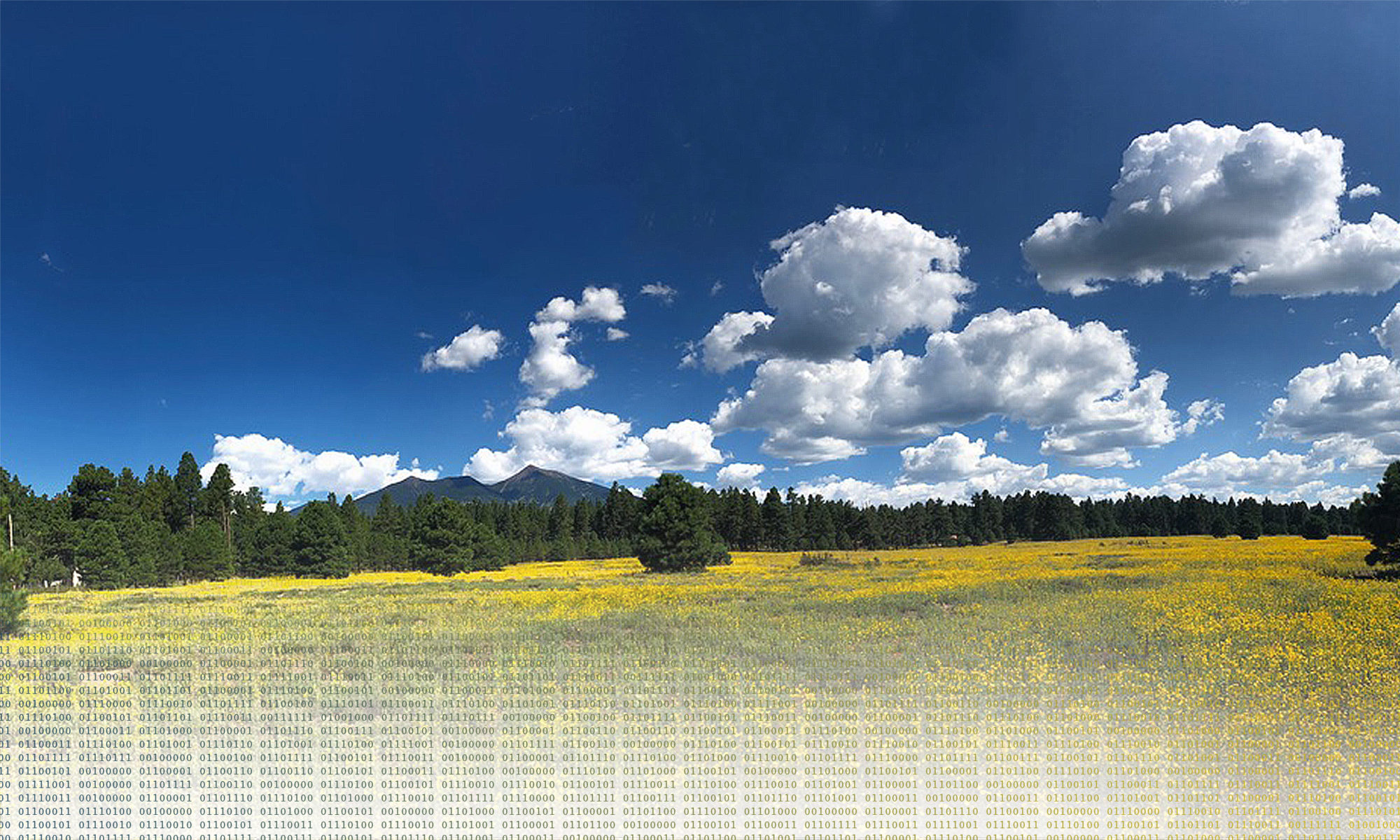|
Sun | Mon | Tue | Wed | Thu | Fri | Sat |
|---|
March | March | March | March | March | 1 | 2 |
3 | 4 11:30 am-12:30 pm April 4, 2022 Carbon Fluxes across Terrestrial and Aquatic Environments in Tropical Alpine Watersheds with Dr. Diego Riveros-Iregui. Diego received a B.S. in geosciences from the Universidad Nacional de Colombia in Bogotá in 1999, an M.S. in hydrogeology from the University of Minnesota in 2004, and a Ph.D. in watershed hydrology from Montana State University in 2008. He was a post-doctoral fellow at CU Boulder (2008-2010) and an assistant professor at the University of Nebraska (2010-2013) before relocating to UNC in 2013 where he runs the Carbonshed Lab. A rapidly growing body of work suggests mountain streams emit surprisingly large amounts of carbon dioxide to the atmosphere. Studies in these environments are scarce and estimates of CO2 fluxes from aquatic environments are poorly constrained. High-altitude tropical grasslands, known as páramos, are characterized by high solar radiation, high precipitation, and low temperature. They also exhibit some of the highest ecosystem carbon stocks per unit area on Earth. In this presentation I summarize findings of surface CO2 fluxes from adjacent aquatic and terrestrial environments based on a suite of field observations. I address the role of hydrology in regulating the magnitude and fate of dissolved carbon in streams and examine the inherent spatial and temporal variability of these fluxes. These findings contribute toward our understanding of ecosystem carbon cycling in high-altitude, tropical, headwater catchments.
| 5 | 6 | 7 | 8 | 9 |
10 | 11 11:30 am-12:30 pm April 11, 2022 Leveraging environmental data for assessing ecosystems resilience and vulnerability to global change. Dr. Ibanez is a Professor in the School for Environment and Sustainability at Michigan University. Her research focuses on current challenges that plant communities are facing in the context of global change, i.e. climate change, invasive species, and landscape fragmentation. Natural ecosystems provide humans and wildlife with a myriad of ecosystem services they rely on, including clean water, product, air purification, climate regulation, soil retention, food and shelter. Still, these services are being jeopardized under current global environmental change. For society to act accordingly, the scientific community needs to provide reliable and targeted predictions of potential effects of global change on these systems. In this talk we cover three examples of how we can leverage existing ecological data for forecasting ecosystems resilience or vulnerability to global drivers of change, e.g., elevated atmospheric CO2, warming and drought, and invasive species. These projects develop the tools for merging data available into system and cross-systems dynamics, e.g., demographic, physiological, fluxes, atmosphere-vegetation interactions, coupled natural-human systems, to provide an understanding of the systems’ performances under a variety of environmental conditions.
| 12 | 13 | 14 | 15 | 16 |
17 | 18 11:30 am-12:30 pm April 18, 2022 The USA National Phenology Network: supporting science, management, and outreach. Theresa Crimmins is the director of the USA National Phenology Network and research professor in the School of Natural Resources and the Environment at the University of Arizona. In her role with the Network, Theresa supports an amazing team of individuals and works enthusiastically to support the growth and use of phenology data and resources curated by the USA-NPN, involvement in Nature’s Notebook, and a broader appreciation of phenology among scientists and non-scientists alike. The USA National Phenology Network was established in 2007 to formalize standardized phenology monitoring across the country. The aims of the Network are to collect, store, and share phenology data and information to support scientific discovery, decision-making, an appreciation for phenology, and equitable engagement within the Network. To support these aims, the Network launched Nature’s Notebook, a rigorous platform for monitoring plant and animal phenology, in 2009. Since the launch of Nature’s Notebook, participants across the country have contributed over 28M phenology records. Participants range from backyard observers with an interest in nature to researchers and natural resource managers asking specific questions. The phenology data contributed through Nature’s Notebook have been used in over 100 peer-reviewed publications to document changes in the timing of seasonal events, to establish drivers to such events, to ground-truth remotely sensed imagery, and more. I will describe the USA-NPN’s offerings, which are all available for use and adoption by interested parties, and include the Nature’s Notebook program and associated curriculum materials, phenology data contributed to the USA-NPN, and the growing suite of derivative data products offered by the Network, many of which are frequently referenced in local and national news outlets including The New York Times, The Washington Post, and The Weather Channel, to document an early or late start to spring locally.
| 19 | 20 | 21 | 22 | 23 |
24 | 25 11:30 am-12:30 pm April 25, 2022 Biodiversity Patterns in Complex Landscapes. Dr. Jelena H. Pantel is currently a Professor of Ecological Modelling at the University of Duisburg-Essen (Germany). Her research focuses on the impacts of phenotypic variation and evolution for community ecological processes. The goal of her research is (i) to develop and test models that can help understand and predict observed patterns of biodiversity in freshwater organisms and (ii) determine how evolution influences the assembly of communities and metacommunity dynamics of interacting species. She has previously worked as a postdoctoral researcher at CEFE (Centre d’Ecologie fonctionelle et Evolutive, CNRS) in Montpellier, France, University of Leuven (Belgium), and The University of Illinois at Urbana-Champaign (United States), and received her graduate training at The University of Texas at Austin (United States). My seminar will cover two topics, both broadly focused on understanding biodiversity patterns in spatially complex landscapes. First, I will share results from a recent study to determine the extinction / persistence fate of 27 species of freshwater snails on the island of Guadeloupe (Pantel et al. 2022). We fit data from a 15-year survey of ~300 freshwater ponds to a Levins metapopulation model, which allowed us to generate extinction / persistence expectations for each snail, to predict an expected time until extinction, and also to identify uncolonized sites that may serve as future sources or sinks for expanding populations. Second, I will share recent work studying eco-evolutionary dynamics in communities of organisms that compete for shared resources (Fielding & Pantel 2020). I developed a simulation model that explores how spatial structure and competition impacted organisms’ ability to adaptively respond to a changing environment. We observed that dispersal of competitors can actually increase the speed of local adaptation to a changing environment, when selection towards the changing environment and towards decreasing niche overlap were in the same direction. Finally, I will discuss briefly some recent research with an overall goal of measuring the impacts of evolution and eco-evolutionary feedbacks (where evolving traits impact species abundances, and these shifts in abundances impact trait evolution, which continues to alter abundances in an on-going process) for community assembly and species distribution patterns. This work is ongoing, but I will be interested to share some preliminary results with the audience. Fielding, A. P., & Pantel, J. H. (2020). Eco-evolutionary feedbacks and the maintenance of metacommunity diversity in a changing environment. Genes, 11(12), 1433. Pantel, J. H., Lamy, T., Dubart, M., Pointier, J. P., Jarne, P., & David, P. Metapopulation dynamics of multiple species in a heterogeneous landscape. Ecological Monographs, e1515.
| 26 3:30 pm-5:00 pm April 26, 2022 Dr. Gurney received the 2022 Research and Creative Activity NAU award for Most Significant Innovation in Technology Transfer or Commercialization. Award ceremony is April 26, from 3-5 pm in High Country Conference Center. 20th Annual Faculty and Academic Professionals Awards Research and Creative Activity Awards President’s Achievement Awards Tuesday, April 26, 2022 | 3 -5 p.m. High County Conference Center 201 W. Butler Ave., Flagstaff, AZ 86001 Hors d’oeuvres – hosted beer and wine RSVP by Friday, April 22 by calling 928-523-3672 or online at nau.edu/PAC For reasonable accommodation due to a disability, please call 928-523-3672.
| 27 | 28 | 29 | 30 |

